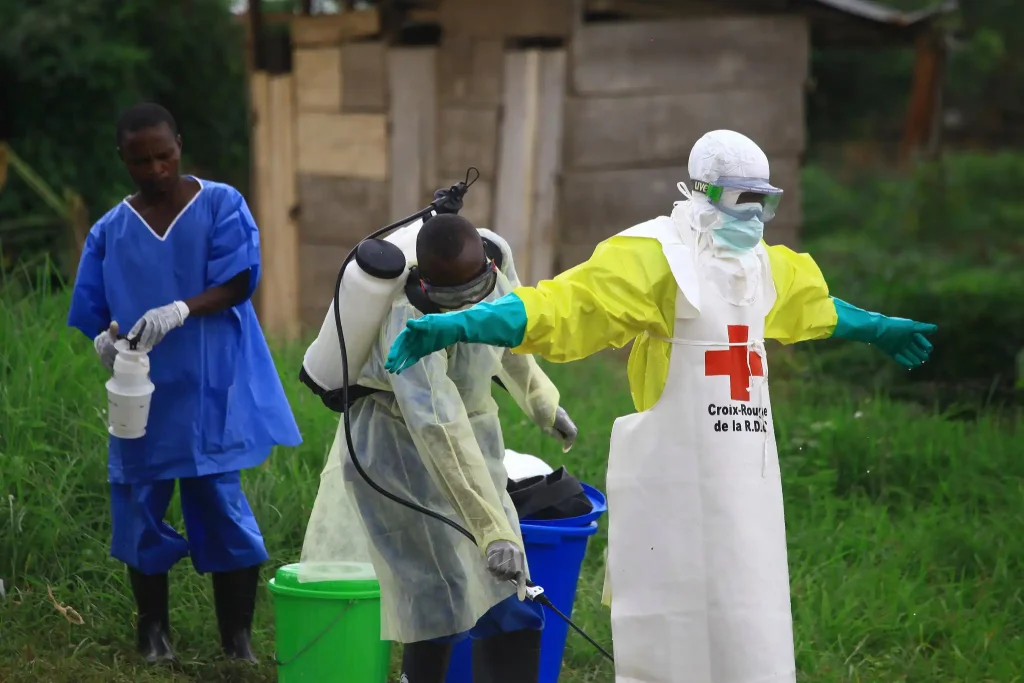On September 4, 2025, the DRC confirmed Ebola after a 34-year-old pregnant woman in Boulapé fell ill. She had a high fever, vomiting, and bleeding.
She died in late August from organ failure. Tests showed the Zaire Ebola strain, leading the DRC’s Ministry of Health to declare an emergency.
Current Situation
As of September 6, 2025, there are 32 suspected cases and 15 deaths, with over half of those infected dying. Four healthcare workers have died. Most cases are in Boulapé, with one in Mweka. The high death rate shows how serious this outbreak is.
Actions to Fight the Outbreak
The World Health Organization (WHO) and DRC health officials are acting fast. Their efforts include:
- Supplies: Sending protective gear and mobile labs to help diagnose and treat cases.
- Vaccines: Distributing 2,000 doses of the Ervebo vaccine to protect healthcare workers and people close to confirmed cases.
- Funding: WHO providing $500,000 to support the response.
Local leaders are asking people to report possible cases by calling 151 and to follow hygiene rules to stop the virus from spreading.
Why This Outbreak Is Serious
Tests show this Ebola outbreak came from animals, not from past outbreaks. This means the virus is still in wildlife, which could cause more outbreaks. The deaths of healthcare workers show the need for better safety measures to protect those fighting the virus.
Risks for Nearby Countries
Countries like Nigeria are on high alert. The Nigeria Centre for Disease Control (NCDC) is watching borders closely, checking hospitals, and teaching people how to stay safe. This helps prevent Ebola from crossing borders.
A Bigger Challenge
The DRC is already dealing with other problems, like cholera, hunger, and people being forced to leave their homes. Weak healthcare systems make it harder to fight Ebola.
This outbreak reminds everyone how important it is to act quickly and work together globally to stop deadly diseases.




















